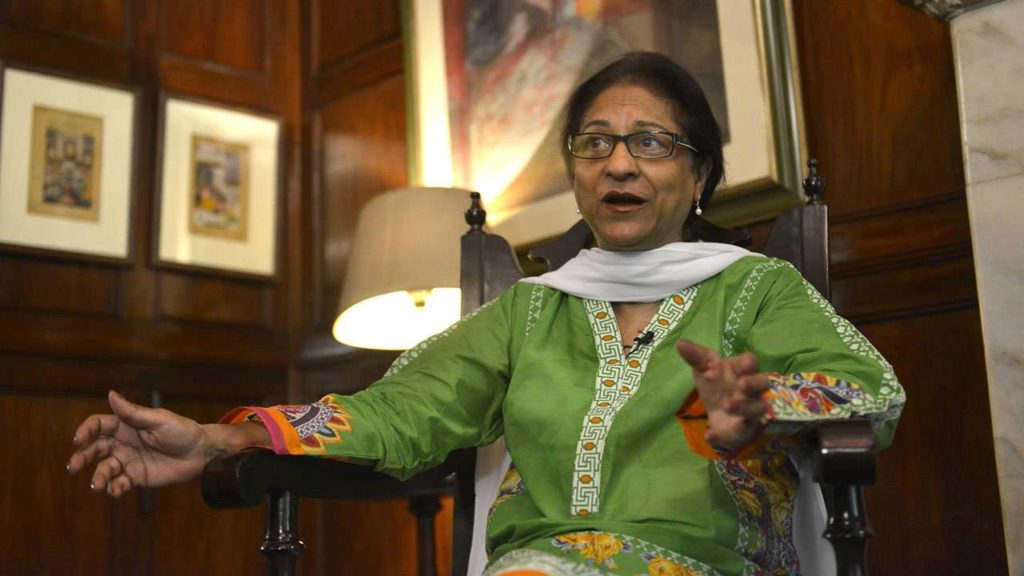Featured image by AFP/DNA India
Many knew Asma Jahangir for her brilliance, and for the celebration of diversity that she always was. She was a beacon of hope as a dogged defender of human rights and a woman who wanted the world to ‘reform and reset.’ Adversity only inspired her and made her stronger.
Asma was many things to many people and a single source of inspiration to those who wished for more humanity and understanding in the world.
While there is much to celebrate in Asma’s well-lived life, it is her deep insights that I am most likely to miss in her absence.
Here was someone who could effortlessly separate the wheat from the chaff, in seconds – and present you with bare facts, possibilities and potential dangers. That quick sifting of facts and her layered analysis always came from a deep chamber of wisdom founded on reality and experience.
Asma was also about amazing connectivity. She effortlessly linked people, interests –sometimes entire regions. Transcending borders of the human mind and geographical territories came effortlessly to her. A global citizen with a South Asian soul, she identified the common threads that might bind us (as well as separate) and the key concerns of transparency, democracy and human rights we all sought answers to, from our various standpoints and corners of the world.
In the many human chains she created, women formed a core constituency. Asma worked with women across the world and within the region – with tremendous passion and commitment. She was the ultimate deep-rooted South Asian feminist who would embrace feminism as a form of motherhood – one of nurturing and defending of positions.
Among the many things that amazed me about this zealous defender of rights was her ability to take stances and defend them, despite great adversity with that trademark ‘never say die’ attitude. She deeply believed that while men may take turns in brutalising the world, women had the capacity to charter a different path, if only they knew how to tap into their inner resourcefulness and believed in ‘community.’
Feisty Asma defied boundaries and strove to be a bridge between India and Pakistan. She packaged her rejection of dividing people in many ways, and in this picture, shows her protest by leading a group of women activists across the Wagah border, straddling the line between Pakistan and India –South Asian Women in Media
I came to gain a better understanding of many things by associating with her, and with time, came to realise what a woman can do and can indeed become. And that feminism is best not embraced as a theory but as a lived in truth with the fullness of life as an Asian woman. “If they call you a bitch, then you are doing something essentially right,” she would say with a chuckle.
Among the many memories I cherish of Asma Jahangir is a hurried little conversation that dates back to late 2009. Her crisp, deep words of wisdom still ring in my ears.
A few months after the brutal slaying of my then editor Lasantha Wickrematunge, we were attending a human rights gathering where the topic of journalists being targeted came up for discussion. Seeing my distress and recalling the situation at home, Asma looked me squarely in the eye and said in the softest of voices: “So it’s hurting. We all are hurting. There’s only one thing we all can do. Give those tears some value. Make those tears your power. Fight. Fight it to the very end.”
Then, she took a moment to reflect on the kind of work she herself dabbled in, as a human rights lawyer.
“Sometimes we talk of policies, processes and reform. Months and years go by with little change taking place. But look at you all (journalists). Sometimes all it takes is, ‘one strong story, well said.’”
